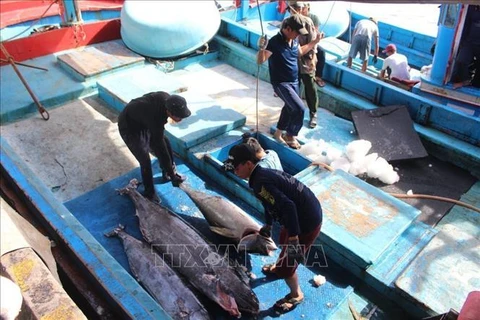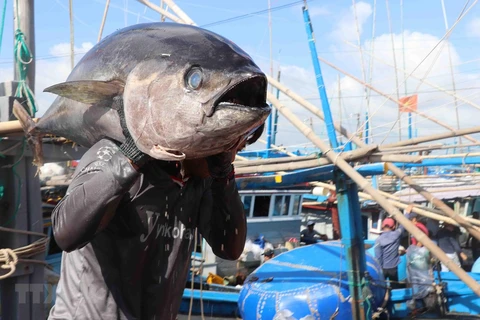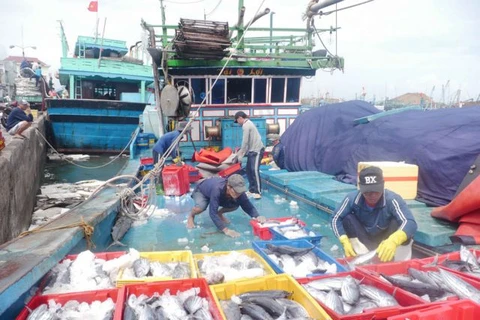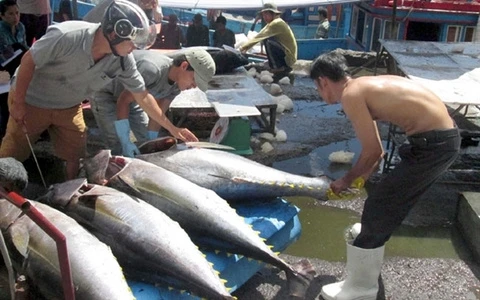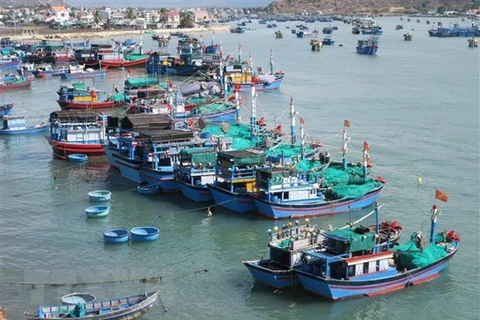Khanh Hoa (VNA) – A workshop was held in the south-central province of Khanh Hoa on October 10 to promote tuna supply chain, and tuna exports to the EU under the EU-Vietnam Free Trade Agreement (EVFTA).
The event was co-held by the Ministry of Agriculture and Rural Development (MARD) and the provincial People’s Committee.
According to the MARD, two months after the EVFTA entered into force, Vietnam’s fishery exports to EU markets have seen positive signs. Tuna export value rose by 8.6 percent month-on-month to 11.4 million USD in August and 13.3 percent to 11.9 million USD in September, adding hope for a rebound in Vietnamese exports to the EU in the remaining months of this year.
Addressing the workshop, Deputy Minister of Agriculture and Rural Development Phung Duc Tien said to sustain fishery production, localities must continue instructing fishermen to comply with international commitments on fishing and stepping up the fight against IUU fishing while encouraging seafood producers to apply advanced technology and diversify their products to match the EU markets’ taste and demand. They must also strictly adhere to regulations related to food safety and intellectual property, he said.
Tuna is among three Vietnamese seafood products favoured by the EU markets, said Nguyen Thi Thu Sac, Vice Chairwoman of the Vietnam Association of Seafood Exporters and Producers (VASEP). Under the EVFTA, tariff will gradually reduce to 0 percent, providing a competitive edge for Vietnamese fishermen and businesses. However, they have to invest in improving technology, production lines and fishing practices in accordance to current regulations in order to remove the EU Commission (EC)’s yellow card warning and further develop the fishery sector, she noted.
Data from Khanh Hoa’s authority shows that as of the end of September, the province’s total sea catches were estimated at 69,760 tonnes, including over 20,380 tonnes of tuna. Its shipments of seafood exceeded 2,890 tonnes, including more than 2,284 tonnes of tuna, a drop of about 20 percent from the same period last year.
The province has set up three local tuna supply chains between seafood producers and fishing cooperatives, which own a total of more than 150 fishing ships./.
VNA

